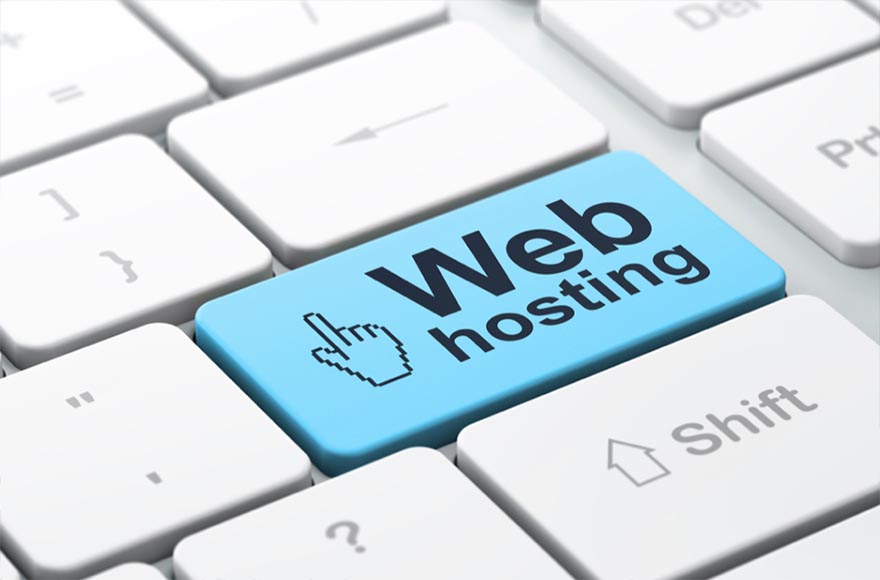
Are you planning to launch your own website? Congratulations. Launching your website is as easy as it can be with the help of online platforms like WordPress. You don’t necessarily be great at coding to have your own website. But all the convenience should not stop you from learning more and finding the best ways to run your website.
As you must already know, the very first step to launching a website is to register a domain name and pick your hosting plan. Here is a simple article that will help you understand what web hosting is, the bad practices you should avoid, and the best practices to help you in the long run.
What Is Web Hosting?

Web hosting is the process by which your website is made available and accessible over the internet. A website is typically an application consisting of web pages, documents, and certain functionalities.
Traditionally, when you initially create a website from scratch, you will first run it from your local machine. The website will be hosted on your local server, and you can access it for testing purposes. But when you want to make the website accessible to others over the internet, it needs to be hosted from an internet server. This server is accountable for handling every incoming request to your website and serves back your website resources back to the client.
Typically, these are the sequence of interactions that happen when you access a website from a browser.
- Your browser will send a request to the website with the URL of the website. The URL gets translated to the IP address of the webserver hosting the website with the help of the Domain Name System.
- The web server will receive and handle the request by sending back the appropriate response with some content.
- The browser will display the content to you as per the website’s programming.
As you can see, to run a website, you need a web server that is connected to the internet. Now you can choose to use your own computer to act as a web server. But think of all the complications with that kind of minimal server support. You need to ensure your server is always up and available, update it as and when required, keep it connected to the internet 24/7, update the security patches all by yourself, and so on. You would also need to upgrade the computing capabilities as traffic to your site grows rapidly.
Running a website from a personal computer can be highly expensive and very difficult to maintain. You need better processing power and better network availability at affordable rates. And that is where web hosting comes into the picture.
Web hosting services allow you to buy a dedicated remote server or use a shared hosting plan. Your website can be run from remote servers maintained by the web hosting provider. Depending on the subscription plan you choose, you can enjoy the corresponding storage, network, and processing capabilities required by your website.
Web hosting companies will take care of all the maintenance, security updates, resource allocation, hardware upgrades, and more that is required for running your websites smoothly.
While it looks good on paper, you cannot leave everything to the hosting company for a smooth website operation. You need to be careful about who you choose to work with and identify the possible bad practices that can lead to inefficiency. Here are some bad practices you must watch out for a while dealing with hosting partners.
Performance Markers
Every hosting provider will market themselves to be the fastest there is. Do not fall for their aggressive marketing. Do take time to look at their real performance benchmarks and metrics to get an idea of how much they actually deliver in terms of performance. Even a big name like GoDaddy has many slip-ups regardless of the hosting plan you choose. Do your research into previous customer reviews, test their performance levels, and choose the provider who can meet your actual needs.
UX over Money
Do not be thrifty with the user experience aspect of your hosting provider. The purpose of choosing a hosting plan for most users is to get a quick and easy view of data to make timely decisions. If the hosting provider provides cheap services but has a glitch UI, you will end up regretting your choice. As qualifying criteria, look if the hosting provider has support for CPanel at the least.
Customer Support

Each second wasted downtime means wasted revenue. You shouldn’t have to wait for a long time just to get connected with your hosting provider’s customer support network. Expect quick and valid responses to your queries. A company that focuses on after-sales customer support is the best to work with.
Hidden Costs
Failing to read the fine print is one of the most common mistakes every consumer makes. The same goes for your hosting plan subscriptions as well. Most times, if you do not pay attention, you will end up paying more than you should.
Hosting companies could bill you for services you never knew you needed. Get a clear understanding of their terms and conditions, all the charges you pay, and the relevant services provided. Keep a check of all the domains you use and your resource usage levels to see if you are paying what it is actually worth for.
Sometimes the provider may charge you a month earlier than mentioned in your plan and then ignore your subsequent queries regarding the bill. These kinds of unpleasant situations usually happen with companies that do aggressive marketing and low prices. They might send you email links with cleverly placed CTA buttons that will get you subscribed to optional services you do not need.
Unsubscribing would later become a burdening task as they would go all silent when you make such requests. So, always pay attention to what links you click on and all the fine print under your terms and conditions before signing up for a service.
Choice Of Domain Name
Another trap you need to look out for is the domain name lock-in. Some free hosting companies will make it impossible for you to change your DNS settings. They will aggressively push you to buy domain names only from them. This can severely limit your options and make it harder for you to transfer domain names when you need them.
No Back End Control
This is another drawback of opting for free hosting services. You will be given little to no control over your back end and sometimes even the front end part of your website. This will limit your customization options and will be challenging to meet your unique requirements. If you are good in development and require finer control of back end operations, it is better to go with paid plans. Paid plans can also give you guaranteed performance and SLAs to enforce performance and availability benchmarks. If you really mean business, always go for a paid service where you can question and seek the promised performance.
Expensive Solutions To Easy Fixes

Let’s say your site is experiencing low performance, and you consult your hosting provider for guidance. They will immediately try to push you to take an upgrade and present it as a panacea for all your site issues. When in reality, an easy fix with optimized coding could have fixed the problem.
Hosting companies have the habit of forcing users to upgrade once the website starts getting more traffic. Before you rush up into an upgrade, evaluate your options, find out the root cause of your issue and then implement the fix or the necessary upgrade in a planned manner.
Otherwise, you will upgrade to a paid plan to find that you still get the errors you used to get with your free plan making the upgrade quite obsolete. Unlimited Offers Are Not Really Unlimited
There are two ways how unlimited plans work. One gives you unlimited access to one aspect of web hosting leaving other critical parts limited, thus demanding you to upgrade eventually.
The other way is that by overusing the unlimited facilities, you will be subscribing for more than you need as you would have no clear idea of your requirements.
Do not fall for hard selling techniques that promise you the world. Do check up with industry experts on how a plan will work in reality and the long-run implications of the plans you choose.
Security Is Of Prime Importance
Never compromise on security when you are running a website. Choose reliable hosting partners with a good track record. Check the security features provided by the hosting partner like access restriction, SSL, firewalls, network monitoring, malware scanner, and so on. Look into whether they have been subjected to any recent cyber-attacks and avoid if they have not taken any remedial action to prevent further attacks.
Beware Of Review Sites
It is an open secret that review sites get paid in commission for every referral made from their site. They are sometimes used as means to propagate a positive reputation by hosting companies. So do take it with a grain of salt as you read through overly praising reviews for any hosting provider. But not all reviewers are shady, and some offer genuine reviews even though they use affiliate links. Look for accurate and detailed information that weighs in on both the pros and cons of a hosting service and lets you decide for yourself.
Having mentioned the few things that could go wrong, let us also give you a heads up with a checklist that helps you choose the right web hosting provider.
Qualities Of A Reliable Web Hosting Provider
Check for the following security features provided by the web hosting provider:
- Hardware security in terms of hardware location, physical protection, disaster recovery after power outages or natural disasters
- Secure access using techniques like SSH, encrypted connection, web application Firewalls (WAF), SSL, and so on.
- The backup capabilities provided should include options for automated and scheduled backups, backup storage limits, versions, frequency, time, and so on.
- DDOS protection that helps stop denial service attacks before they happen.
- Content Distribution Network (CDN) support for secure and optimized website operation
- Support for malware scanning, detection, and immediate removal. Look into the security software used for ensuring network and application security.
Besides your web host, you should also take up some proactive measures to ensure your websites are secure over the internet. Install only verified and safe plugins, themes, and applications and keep your site updated with the latest security patches and standards.
Maintain a strong password and allow only authorized access to your site. Make use of an SSL certificate for added security.
Keep yourself informed of the various terms and conditions, your growing website requirements to assess what you should subscribe for. Learn to make full use of your web hosting dashboard and employ additional monitoring tools to track your resource utilization levels.